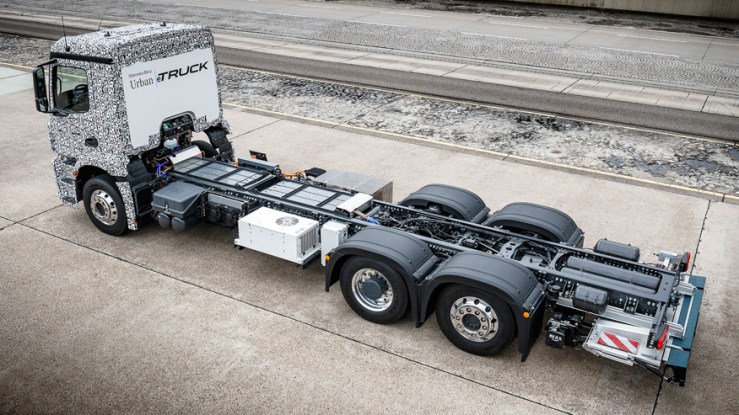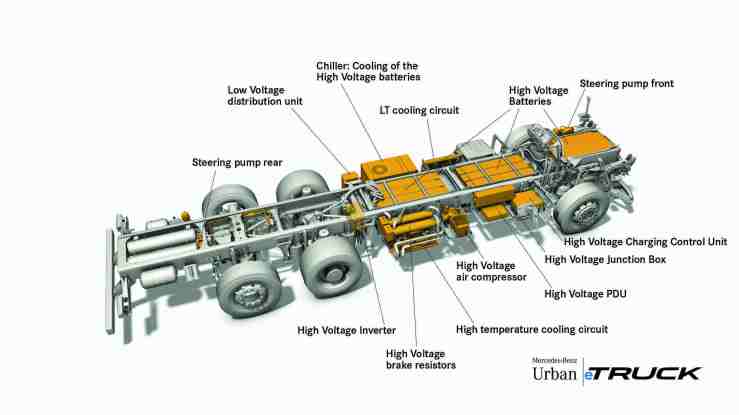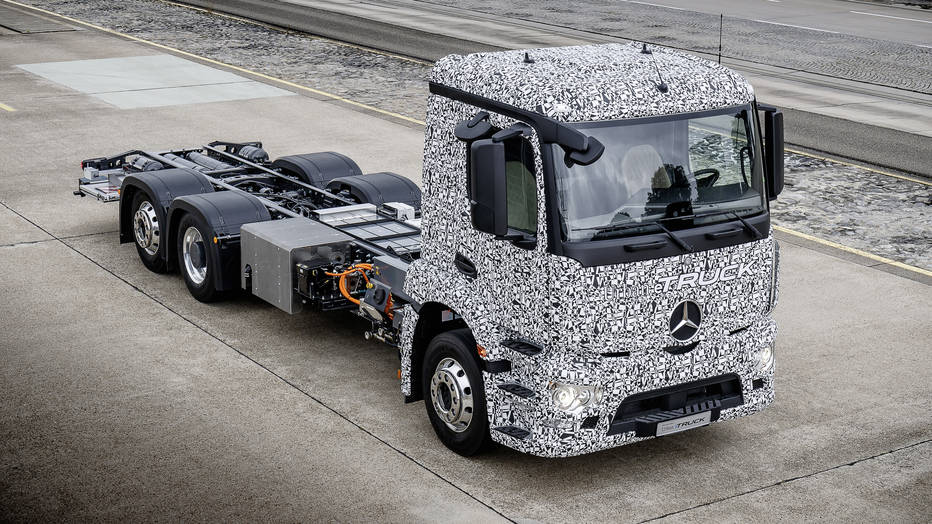USA/Munich, August 12, 2016.- The market for electrical and hybrid cars is still a growing trend, but slow. However, the manufacturers of electric cars, (and autonomous), have also been fixed in the overland transportation of goods. Tesla and Mercedes, time, taking the lead with the first prototypes.
Mercedes-Benz outlined plans to start selling an electric heavy-duty truck in about five years, a week after Tesla Motors’ initial sketch on battery-powered commercial vehicles failed to impress inventos. The Mercedes-Benz Urban eTruck will have a range of about 200 kilometers (120 miles) per battery charge and capacity for loads of as much as 26 metric tons, parent company Daimler said today in a statement. The model, targeted for inner-city tasks such as supermarket deliveries, could go on sale by the start of the next decade, it said.

Truckmakers are starting to develop electric models to meet tighter emissions rules for city centers, though options are limited due to a lack of batteries with the durability to propel fully loaded vehicles for long periods of constant use. Trucks tested include the 6-ton Canter e-Cell from Daimler’s Fuso brand and a model from Swedish competitor Scania that’s powered by overhead electric cables, while U.S. startup Nikola Motor has outlined plans to unveil a battery-powered prototype in December. “Until now, there were extremely few commercial vehicles with electric powertrains,” Wolfgang Bernhard, head of the Daimler Trucks division, said in a statement before presenting the model in the company’s hometown of Stuttgart, Germany. “There’s now such a significant improvement on costs, performance and charging times that we’re seeing a step-by-step change.”

Tesla CEO Elon Musk included a freight truck as part of a proposed lineup expansion in his July 21 master plan for the U.S. manufacturer. While the company’s Model S sedan was the first e-car with broad appeal, a commercial vehicle will pose a new challenge as fleet operators focus on cost of ownership and durability over design and comfort features. Customers will also be reluctant to risk buying unproven technology, said Tom De Vleesschauwer, an analyst at research company IHS Markit. Tesla has the potential to overcome those doubts by cooperating with co-founder Ian Wright’s Wrightspeed, a manufacturer that specializes in electrifying trucks, De Vleesschauwer said. “Nikola Motor and Tesla have raised plenty of market enthusiasm and speculation,” the analyst said. “Market prospects are such that the share of electrified medium- and heavy-duty trucks could grow for specific market applications only.” Sales of electric versions might account for 4 percent of European Union and U.S. medium- and heavy-duty truck sales by 2025, according to IHS.


[…] Esta manhã, ao efetuar a minha actividade de Social Listening, deparei-me com este artigo – Can you imagine a truck of goods supplied with electric power? Tesla and Mercedes say yes […]
LikeLike
Reblogged this on VÍCTOR VILAS.
LikeLike